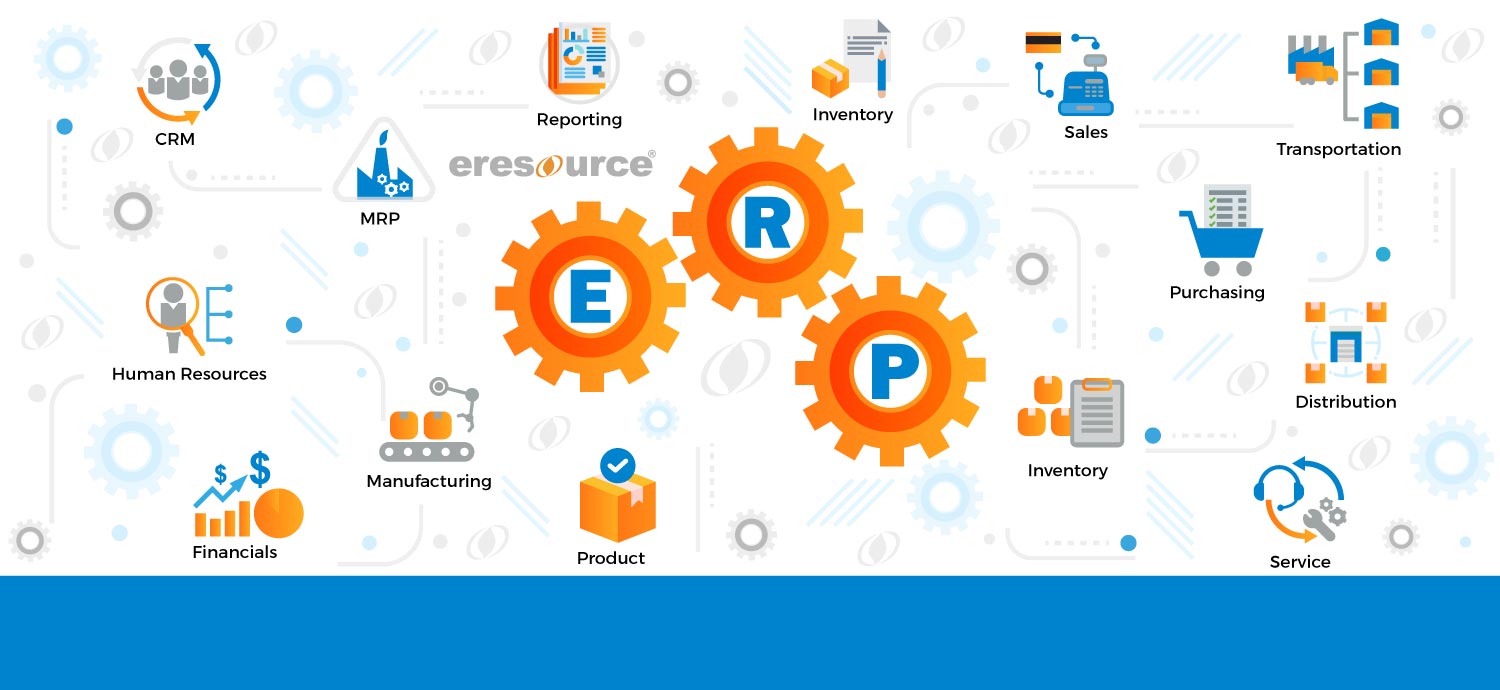ERP in India – Some of the first Indian companies to have adopted ERP practices are HLL, ONGC, ESSAR, Godrej Soaps, Cadburys, BASF, Telco, Maruti Udyog Ltd., Century Rayon, Citibank, ACC, ANZ Grindlays, German Remedies, Blue Star, Mahindra & Mahindra, Rallis India, Sony India Pvt. Ltd., Ceat Ltd., Indal, Ford Motors, Kirloskar, Knoll Pharmaceuticals, and Glaxo.
First tier companies (those with a turnover greater than Rs.10 billion) implement ERP to increase internal efficiency and external competitiveness. Once ERP is established at this level, these large companies begin to desire similarly increased efficiency from their suppliers. Hence, second tier companies are pressured to implement ERP, and a trickle-down effect ensues. Powered by the axiom that a chain is only as strong as its weakest link, Indian industry quickly has recognized that in order to work at maximum efficiency, ERP must be implemented at all levels.
Initially, the majority of ERP solutions have been marketed to companies with greater than Rs. 2 billion, and generally, according to industry reports, the total cost of deploying ERP has ranged between 1 and 2 percent of companies’ gross sales. Lower cost solutions are available for comparatively smaller sized companies.
Though the market seems to be very encouraging for ERP implementation, the time-frame for deployment may be an issue. However, since many companies that have not yet implemented ERP are leaders in their markets, it reasonably can be assumed that they will go for it within next five years. In fact, the ERP market should grow at a rate somewhere near the industrial growth rate.
Some industry categories, such as Automotive, Steel, Consumer Durables, Engineering, and Textiles have shown a very high ERP penetration. This means that these categories represent the greatest potential markets in next two years – other industries will follow. Figure 1 illustrates the market across various industries.
Also Read – ERP Software for Construction
>> Survey of Industry ERP Implementations
ERP implementations completed between 1995 and 1998 in India can give a sense of specific hurdles that companies may encounter in ERP deployment. Several companies were surveyed, and numerous ERP professionals were interviewed in order to assess the state of ERP in India. The results indicate that Indian companies are moving forward with ERP implementation primarily in response to thrusts from parent collaborators, to revamp in order to meet increased load, or to reduce lead times and inventory levels, and improve customer satisfaction.
Resistance to change – in the form of fear of the unknown, reluctance to learn new techniques, or IT department reluctance to change due to attachment to its product – was a major hurdle faced during many ERP implementations. Additionally, the duplication required in the initial stage, and the intense pressure exerted on manpower proved to be problematic, as did the level of customization necessitated by disparities between company requirements and solutions offered by ERP software. This problem is diminishing due to advances in the software facility models.
Cost overruns also proved to be a pervasive problem with ERP implementations. Since most consultants charge on a man-hour basis, project time overruns substantially inflate incurred costs. To avoid this problem, top management must develop the necessary commitment to ERP, and all employees should be prepared for the change before the ERP implementation process is started. This model should help to eliminate needless project time and cost ballooning.
>> ERP in the Service Sector
Transportation, medical care, hospitality, courier service, telecommunication, banking and financial services, and entertainment represent the major components of India’s service sector, and on probing into the various needs of these groups, it becomes apparent that the courier, transportation, and entertainment industries do not have specific current needs for ERP. Banking and telecommunication each have very specialized requirements that the manufacturing-inclined software solutions on the market would not effectively address. The same holds true for the medical care and hospitality industries. The service sector has the potential to become an important ERP market within a few years. At this time ERP implementation in the services sector is very limited – only a few hospitals and banks have done small-scale experiments. New software and processes will need to be developed to meet the specific demands of the service industries, so ERP players should begin now to prepare themselves for the tremendous potential of this future market.
>> Assessment
The Indian economy has reached a level of maturity that demands advanced technology. Although the Indian agricultural sector has not yet mechanized and there is little potential need for agriculture-based ERP in the foreseeable future, the services sector offers a largely untapped potential. With the pace of developments in the services sector continuing at 7 percent, there is a large scope for ERP in these markets.
Many Indian industries already have realized the need for ERP solutions, and the industry-related market growth should match the expansion of the sector as a whole. The maximum potential growth of the ERP market rests with companies that have a greater than Rs. 2 billion turnover, with smaller companies positioned to follow directly.
India is developing its infrastructure, ERP manpower requirements can be met, and the Indian mindset is changing with the times. Certainly, if the national railways could computerize operations, ERP does not seem an insurmountable challenge. In fact, the Indian ERP market looks very much like a $7.5 billion opportunity that has decided to take the plunge.
Also Read – ERP Software for Manufacturing
Categories
Register for Free Demo!
Recent Post
-

eresource ERP 360 - an
11th Apr 2019 -

A competitive ERP system for
17th Apr 2019 -

Auto components manufacturing industry has
17th Apr 2019 -

Make the best use of
17th Apr 2019






